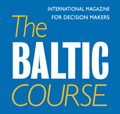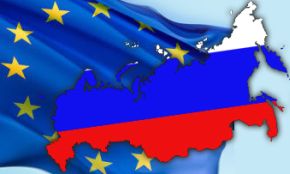
All rights reserved.
You may not copy, reproduce, republish, or otherwise use www.baltic-course.com content
in any way except for your own personal, non-commercial use.
Any other use of content requires the hyperlink to www.baltic-course.com.

Printed: 10.05.2024.
 PrintRegional stability and modern security: EU-Russia’s dialogue needed
PrintRegional stability and modern security: EU-Russia’s dialogue needed
 |
|---|
Present tense EU-Russia’s relations (including negative stance from other western states, first of all the US) have been “activated” in mid 2014, after conflict over Ukraine. It seems that these relations have turned into a “cold war” period. Familiar words indeed; they were heard decades ago…
However, decades ago, with the global confrontation between capitalism and socialism such a “cold war” was a reaction to both sides’ irrevocable ideological differences. But even then, nobody wanted a direct confrontation turning into a real military conflict, though even then “tactical” nuclear weapons have been a reality, though never used.
Instead, a palliative “cooperative instrument” has been unleashed: peaceful coexistence. Isn’t it an alternative in modern time, when ideological differences generally disappeared and both sides are following a so-called a “capitalist-way”?
This is why most worrying for the Russian side have been NATO’s military moves aimed at stationing more so-called rotating troops near Russian borders, though officials call it “no permanent” troops. NATO’s troops’ deployment in Russia’s frontline states (e.g. in Bulgaria, Estonia, Latvia, Lithuania, Poland and Romania), according to NATO-bloc’s announcement is the “agreed reaction” towards “menaces from Russia’s actions” in Ukraine.
NATO’s officials did not reveal exact numbers of so-called “rotating troops”; it will be determined during summer 2016. However, the alliance said it would “not set up new military bases as urged by Poland and others”, in an effort that would show that NATO did not want to provoke Moscow.
New security means and new challenges
There could be no definite sense in making “rotating troops” preventing any state’s moves in Europe. Modern technology could make the surveillance process much easier and less expensive.
Thus, for example, the 4th Industrial Revolution (4IR) will profoundly impact the nature of national and international security, affecting both the probability and the nature of conflict.
The history of warfare and international security is the history of technological innovation, and today is no exception. Modern conflicts involving states are increasingly “hybrid” in nature, combining traditional battlefield techniques with elements previously associated with non-state actors. The distinction between war and peace, combatant and noncombatant, and even violence and nonviolence (think cyber warfare) is becoming uncomfortably blurry.
As this process takes place and new technologies such as autonomous or biological weapons become easier to use, individuals and small groups will increasingly join states in being capable of causing mass harm. This new vulnerability will lead to new fears. But at the same time, advances in technology will create the potential to reduce the scale or impact of violence, through the development of new modes of protection, for example, or greater precision in targeting.
See, e.g. http://www.weforum.org/agenda/2016/01/the-fourth-industrial-revolution
However, 3-parties initiative (with German, US and the UK, with other “free-will” western states like Denmark) called TACET – Transatlantic Capability Enhancement and Training with about 5 thousand solders per year is aimed at helping “defense capabilities” in the Baltic Sea region.
Threat from NATO is hard to exaggerate: it has grown from initial 12 states (10 European and 2 North American) to 28 presently with 4 Balkan candidate states. European troops reached about 2 mln solders with 1,5 mln from the US. Russian military ability is calculated at about 900 thousand solders with 10 times less military budget. NOTO-member states are presently literary surrender Russian Federation (except for its northern part (with neutral Finland and Sweden)! It’s quite easy to see the expansionist trends in the NATO strategy.
Source: Der Spiegel, ISS, the Military Yearbook, 2014.
At the NATO’s September 2014 Wales Summit, the alliance put collective defence back as the primus inter pares among NATO’s three core tasks (the others being crisis management and cooperative security). NATO, however, needs to perform in an environment that fundamentally differs from the cold war time in security, political, financial and military terms. Moreover, a sole concentration on collective defence neglects the challenges faced by the Southern allies in particular. Thus, the Alliance needs to find a balance between collective defence and crisis management, both in updated versions, and also to factor in its third core task, cooperative security.
http://www.iai.it/en/pubblicazioni/nato-and-european-security-back-roots.
Europe and the United States are divided over the Ukraine crisis. Washington views Russian actions in a global perspective and seeks to contain and isolate Moscow. Most European governments want to limit the damage while maintaining engagement. Russia perceives a threat to its vital national interests from the West, but paradoxically pursues policies of increasing self-isolation. Ukraine, seeks to sustain its sovereignty and to reform its failed and corrupted institutions, but not as a proxy battlefield between the West and Russia. NATO seeks to reassure its vulnerable Eastern members, but has little influence on Moscow or practical value for Ukraine, a non-member.
It seems all agree that the EU helped initiate the Ukrainian crisis and now has the primary responsibility to assist Ukraine. Transatlantic unity will likely erode if political solutions are not found for Ukraine and, perhaps, even if they are.
“Soft power” in West-Russian relations
The main aim of the discussion is to reflect, first, on the transformation of the concept of the “soft power” and on how on-going events in and around Ukraine have reinforced the importance of information space. Second, it will also discuss current developments in Russia’s and EU’s policies and how these are perceived in the Baltic States and Eastern Partners / Black Sea Region.
The team of keynote speakers has been quite impressive: L. Čigāne (Latvian Parliament), R. Sadowski (Centre for Eastern Studies, Poland), A. Sprūds (Latvian Institute of International Affairs), I. Klymenko (Institute for Strategic Studies “New Ukraine”, Ukraine), E. Tuohy (International Centre for Defence and Security, Estonia), J. Korejba (Centre for International Journalism and Research, Russia), and A. Kudors (Centre for East European Policy Studies, Latvia) with M. Daugulis (Latvian Institute of International Affairs) as a moderator.
The event, actually, was dedicated to the presentation of the book, which examines projection of “soft power” by the EU and Russia, having special focus on Ukraine, Moldova and Georgia among the EU’s Eastern Partners. The book also examines the experience of the Baltic States, which (according to the participants), despite being full-fledged EU member states, “still remain an area of interaction and contestation”.
See: Latvian and foreign experts to discuss EU’s and Russia’s “soft power” in the Baltic States and Eastern Neighbourhood
The EU itself is in deep problems; experts (e.g. Caroline de Gruyter in her latest essay) argue that Europe is at a crossroad: “the trouble with Europe is that no one takes ownership and responsibility for what happens in Brussels”. Politicians come home and say the opposite of what they’ve just decided in Brussels …
No doubt, that situation starts seriously undermining the EU’s legitimacy (in contrast, the state or municipality’s legitimacy can never be undermined). A typical remark came from the Italian Prime Minister Matteo Renzi’s latest remarks to Bloomberg that “the EU is like the orchestra playing on the Titanic.”
Thus, new global and regional challenges demand fresh impetus both in politics and diplomacy. Both sides in conflict have their problems to solve: the EU’s threatened to dissolve, Russians are combating humiliation. To console modern problems a new “peaceful coexistence” has to be re-invigorated.
EU’s political polarisation, economic fragmentation and security threats bring many uncertainties. This is a serious reason of concern for business, which requires European-large solutions; for example, having strong business presence in Brussels could be vital to ensure that the business community speaks with one voice. Having a common vision of the future is particularly important in these testing times.
Source: https://www.businesseurope.eu/publications/businesseurope-headlines-no-2016-06.